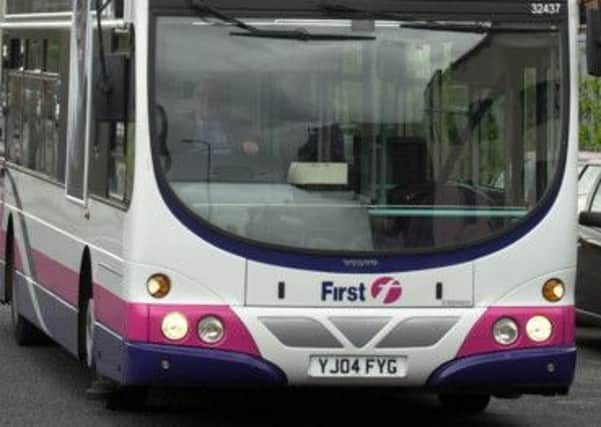Improving Leeds and West Yorkshire buses '˜is our ticket to a better economy'


And it is hoped the new Bus Strategy for West Yorkshire will help galvanize wider economic growth in Leeds and beyond – by encouraging new and existing workers to get back on the buses following decades of declining passenger numbers.
Key figures from the region’s public transport executive, the West Yorkshire Combined Authority, are expected to rubber-stamp their draft bus strategy at a meeting on February 26.
Advertisement
Hide AdAdvertisement
Hide AdCentral to the strategy, they say, is the creation of a single, integrated bus network with its own brand; a simpler, more unified and cheaper ticket range which reflects geography and travel patterns rather than operators’ choice; and a modern clean, eco-friendly bus fleet which could include hybrid vehicles.
Tom Gifford, project manager at West Yorkshire Combined Authority, told a Leeds City Council inquiry: “Buses are very important.
“People travel by bus to get to work, to school, to college, to the shops. And in doing so, that provides significant economic and social benefits for the broader community.”
However he added: “Bus patronage has declined. Not just in West Yorkshire, but also across the North on the whole.
Advertisement
Hide AdAdvertisement
Hide Ad“When you compare that to the economic growth which is happening across the North of England, the increase in rail patronage, the increase in walking and cycling, why is bus patronage falling?
“There is a massive opportunity for us over the next 10 to 15 years. The strategic plan sets ambitious targets for the level of growth we want to achieve.
“And to enable that economic growth to materialise, it is about enabling the bus to play its role by helping those people to get to work, to those new jobs.”
Mr Gifford and his colleagues were speaking as a debate around the future of regional bus services across the country - and their importance in the wider devolution debate - gathers increased momentum.
Advertisement
Hide AdAdvertisement
Hide AdThe YEP reported last week that some campaigners are backing new proposed franchising laws, which they say would give our region a London style service, with Oyster-type ‘all-in-one’ ticketing, cheaper and simpler fares, better customer guarantees and a reversal of what they claim is decades of declining passenger numbers.
Across West Yorkshire, around 180-185 million bus journeys are carried out every year.
However bus usage has declined significantly over the last 20 years, according to research.
Supporters of change blame the creeping effects of deregulation and a lack of real competition, claims that the region’s two main bus operators have fiercely rebutted. The operators also say that huge amounts of work in the last few years to improve services has reversed the previous downward trend in passenger numbers.
Advertisement
Hide AdAdvertisement
Hide AdBut civic leaders say that simply isn’t enough to match the region’s wider economic goals.
“We are targeting ambitious growth of 25 per cent,” Mr Gifford added.
“That’s quite a step change from where everyone is across the North of England at the moment
“To achieve that, we need to put in place measures which will help facilitate people wanting to travel by bus.
Advertisement
Hide AdAdvertisement
Hide Ad“The ambition is a financially sustainable and growing bus system.
“But fundamental to that is delivering a bus system which customers want to use, which empowers customers across West Yorkshire to travel by bus.”
Neale Wallace, Bus Services Manager at West Yorkshire Combined Authority, previously told the City Development scrutiny panel that according to a competition commission report for West Yorkshire, the “adverse effect” of a lack of competition was “around £25 million”.
He said this equated to around 250 extra buses that could be operated in the region, and this could result in lower fares and more frequency of service.
Advertisement
Hide AdAdvertisement
Hide AdThe West Yorkshire Combined Authority is producing a new, overarching Single Transport Plan, a key element of which is the Bus Strategy.
A 12-week public consultation on the strategy will start in the Spring.